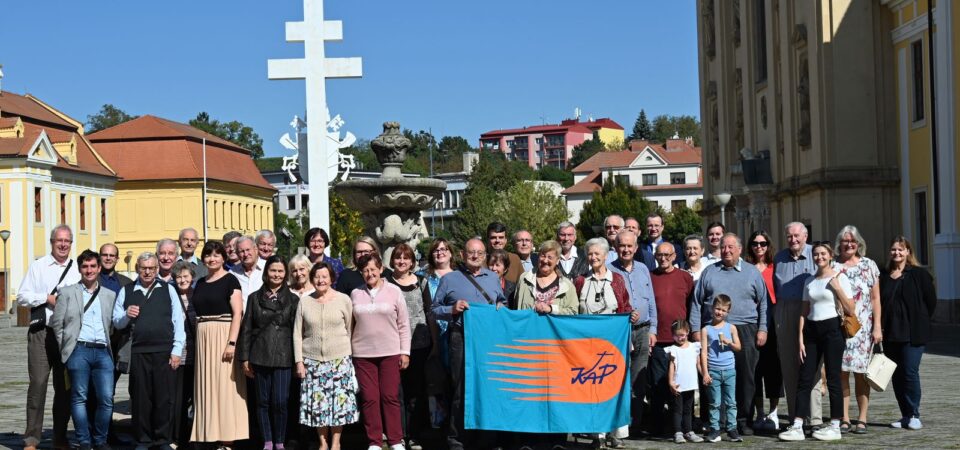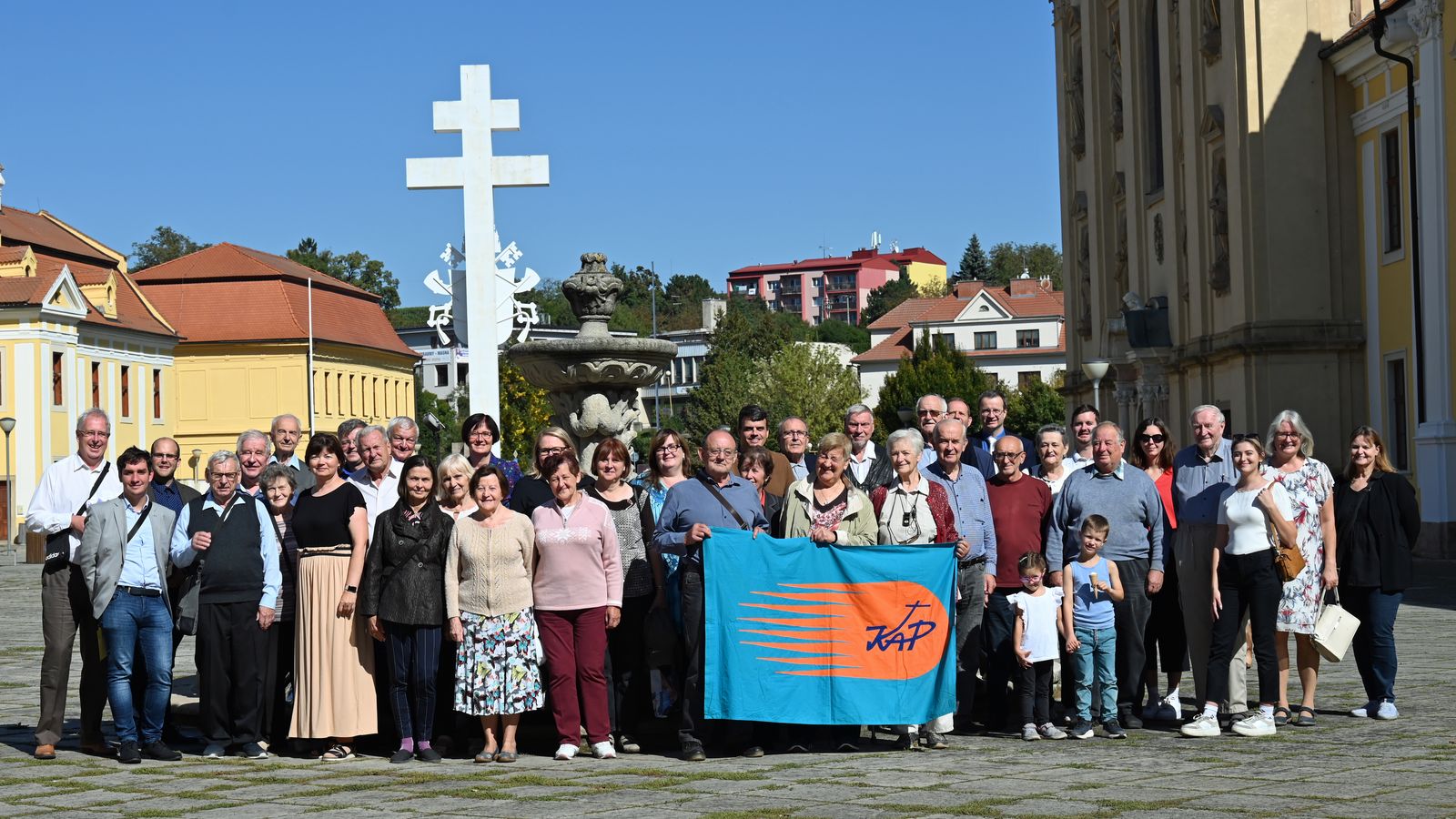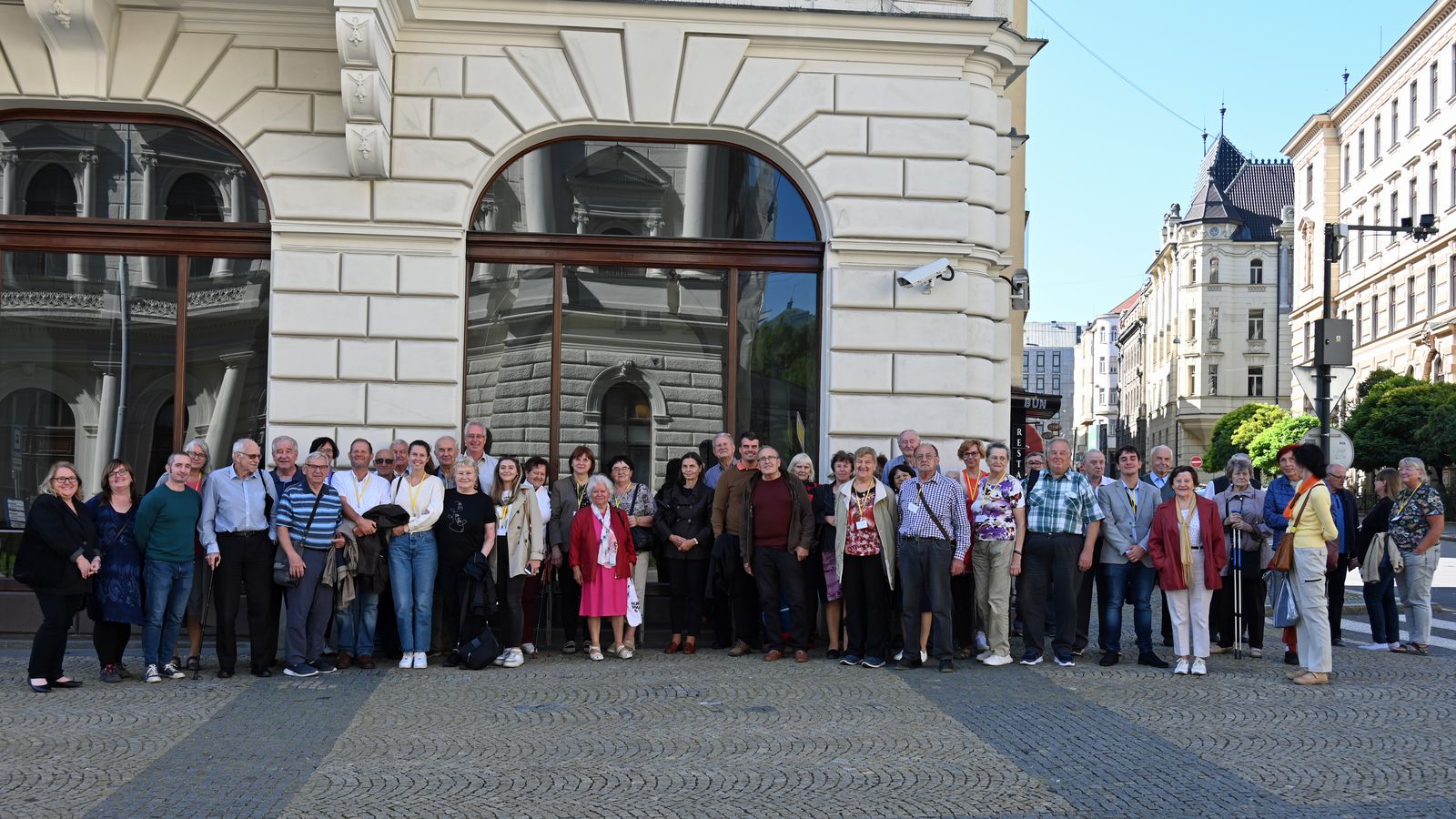

Seminar organized in partnership with EZA
as a project No. 40-02-24-SE on the topic
Inflation and loss of purchasing power
Seminar was financially supported by the European union.
Seminar was attended by 65 participants, including 4 interpreters and 1 technician. Following EZA partner-organizations participated – NKOS, ZKRS, KAB. Number of foreign participatns: Poland 1, Germany 1, Austria 1, Slovakia 15, Ukraine 2, Czechia 40 participants–KAP members. A total of 12 presentations were presented by speakers from Poland (1), Germany (1), Austria (1), S(1), Ukrajiny (2) a z České republiky (6).
The aim of the seminar was to evaluate growth of society’s well-being which is reflected in the long-term growth of people’s purchasing power. European countries have long experienced economic development, which led to an increase in the population’s purchasing power. However, the current crisis, the accompanying phenomenon of which is the highest inflation in EU countries for many years (some even decades), is leading to a decrease in the purchasing power of a large part of the population – this especially applies to socially weaker groups and employees. At the same time, this development deepens income and wealth disparities between individuals or regions within individual countries. In addition to disparities within individual countries, there is disproportion across EU countries; current inflation affects post-socialist economies more, either because of their higher energy dependence on Russia or because of nominal convergence.
The added value of the seminar was a better understanding of the consequences associated with high and unpredictable inflationary developments. These insights can be used to create a Christian-social policy that enables workers’ rights to be defended, social peace to be ensured, and inflationary pressures in the economy to be reduced through responsible fiscal policy. This seminar contributed to a better understanding of the mentioned consequences within tripartite negotiations and collective bargaining framework.
Program:
Friday panel included six contributions looking at inflation from different perspectives. Inflation was viewed as a global challenge that deepens changes in consumer behavior (Lidmila Němcová) and as a significant cause of redistribution in society with the greatest negative impact on the poorer population in the Czech Republic (Michal Mádr) and Slovakia (Ľubica Černá). The phenomenon of inflation was put into a long-term world context with the development of the standard of living (Richard Pospíšil) and further, it was presented how the observed phenomenon is related to the transformation of the source of wealth and how it influenced the view of the concept of useful work (Marko-Bohdan Kalynyak). An example from practice was a contribution focused on the effects of inflation on the social policy and social cohesion on the example of a company that employs disabled citizens (Olga Rosenbergerová).
After the dinner Ukraine guests introduced their lessons from Russian vision of the world and consequences for recent war at Ukraine.
Saturday program included two discussion panels in Brno. The first one took place in the Czech National Bank branch, where there was discussed the role of central banks in price stability maintenance. The second one took place in the Augustinian abbey.
Sunday panel was primarily devoted to inflationary developments in the German economy, both current trends (Miriam Catulo), and the German hyperinflation 1920s (Kazimierz Falak). Both contributions made it possible to highlight similarities and differences in the causes and consequences of inflation using the example of Germany, the most crucial European economy. At the same time, both contributions dealt with the reaction of the German government and the government’s ability to stabilize price developments in the given country. The contributions also discussed how a higher inflation rate could lead to the growth of radical parties through the reduction of voter confidence in the democratic system, which is important in the context of current developments not only in the Federal Republic of Germany. This panel was supplemented by a third contribution, which offered the perspective of Catholic social teaching on the division of labour in the context of global challenges, including inflationary developments (Bolek Vraný, KAP board member).
Organizational information
- Venue: Slavoniv hall of Stojan’s grammar school
- Accommodation and boarding: Pilgrimage house Stojanov
Links to the presented papers
- Assoc. Prof. Lidmila Němcová, KAP – Inflation and consumer behaviour
- Prof. Richard Pospíšil, Palacky University Olomouc – Inflation phenomenon and living standard
- Michal Mádr, Ph.D., FBE MENDELU, KAP – Economic and political impacts of inflation
- Assoc. Prof. Ľubica Černá, NKOS Slovakia – Inflation impacts on families – Experience of Slovakia
- Kazimierz Falak, Poznań University, Poland – Influence of historical experience with hyper-inflation on recent German attitude to inflation
- Miriam Catullo, KAB Aachen, Germany – Sources of income and inflation
- Boleslav Vraný, Ph.D., KAP – Labour division in the context of church social doctrine


